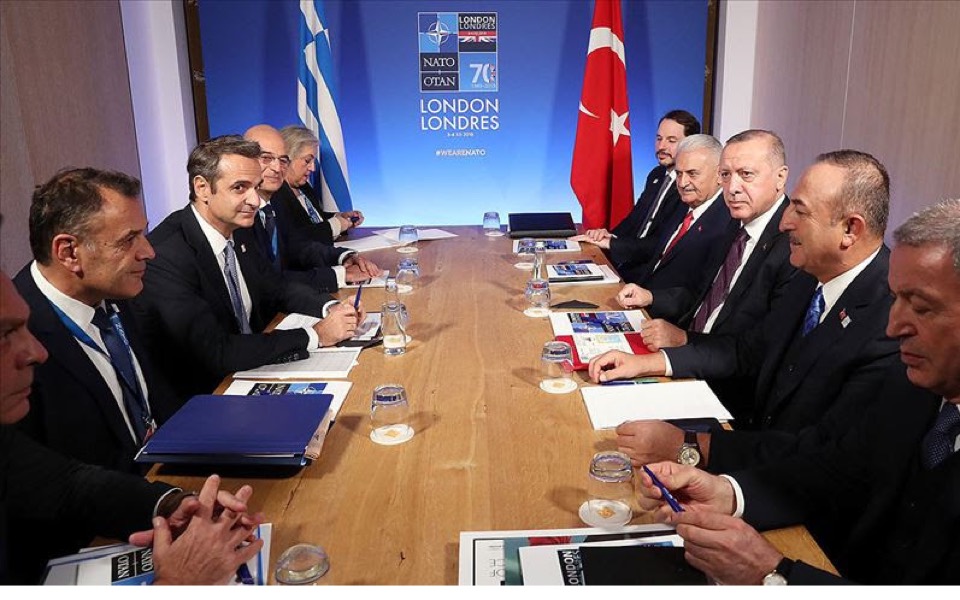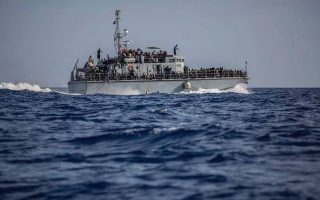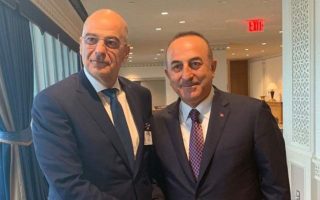What would Greece gain from dialogue with Turkey?

The dialogue process, I hasten to stress, is something different to a negotiation, and is not only perfectly acceptable in international relations, but is also the process of choice in international legislation and on the part of the international community. Official or working visits are held on a daily basis, at every level, from the highest to that of staff, all over the world.
Even a bilateral meeting on the sidelines of some international meeting is a form of dialogue, in that it entails an exchange of positions and opinions – which is the absolute essence of diplomacy. It is evident that the process of entering a dialogue makes more sense when the two sides have problems or clearly divergent positions.
In order to answer the question in the title, it would be useful to look back at what has taken place over the past year. In short, therefore, we saw migration flows from Turkey tripling in size, in combination with a tougher stance from Ankara, both in terms of its lawless behavior and in its public statements and even threats. We also had the hybrid war on the northeastern border with Turkey at Evros, the maritime borders agreement between Ankara and Tripoli, the licensing process for hydrocarbon exploration “blocks” at distances of as little as 6 nautical miles from Greek islands, and an increase in overflights above inhabited Greek islands.
It is obvious, therefore, that Turkey has been relentlessly pursuing the policy of pressure, the strategy of coercion and the diplomacy of brinkmanship in order to create the conditions that could lead to a military incident and then seek to hold negotiations “with the gun on the table.”
Greece countered Ankara’s delinquent and aggressive behavior with a steady and consistent strategy that links the means to the ends, that combines policy with the armed forces and diplomacy. This is based on three main pillars:
1. The reliable and clear declaration of Greece’s red lines – meaning that we will seek to prevent, with any means at our disposal, any violations of our sovereign rights.
2. A strong reaction to any attempts to violate our sovereignty or our sovereign rights, as was the case with the Evros migrant push and more recently with the illegal navigational telex Ankara issued for the Oruc Reis seismic research ship.
3. Making it absolutely clear that any relationship between Turkey and the European Union would first have to pass through the filter of good-neighborly relations with Greece and, as such, that any violations of our sovereign rights would have serious consequences – beyond our own strong reaction – on European-Turkish relations.
The international community has come to understand two things: that Turkey is in a confrontational state of mind that will lead to significant destabilization not just in the region but also in NATO, and also that Greece is not responsible for this. Despite the saying that it takes two to make a quarrel, it was so abundantly clear that the tension is being generated and kept up by Turkish aggression alone that there has been no excuse, no room even, to reject demands for measures to be taken against Turkey for violating our sovereign rights, even for those that see the country in a favorable light.
At the same time, we have amply declared – in every tone – that we desire open channels of communication, but will not sit down to talks under pressure nor accept any framework apart from that provided by international law and mutual respect.
It was in this general framework that the German mediation initiative was activated. Greece responded in good faith, both because it wants exploratory talks to begin again, and because it is a country whose actions reflect its words. You are not reliable when you lay down “red lines” – whose violation would have such important international repercussions – without proving that you are also willing to make a good-faith effort within the framework of reason and justice to avert this danger. In international relations, credibility is just as important as strength.
Greece’s participation in the three-way talks, even though Turkey had only recently announced the conversion of the Hagia Sophia basilica into a mosque, took away any last suggestion that Greece could also be held partly responsible for any possible escalation. Our reliability was confirmed, and it paid off. When, after all this, Turkey issued the navtex for the Oruc Reis’ seismic surveys, it exposed itself as a country that scuppers any effort at dialogue and seeks confrontation. Our consistent and reliable policy, in combination with the strengthening of our fleet, eventually led to a Turkish retreat.
As a result of all this, the attention of the international community has turned on this region. Actions like Turkish Foreign Minister Mevlut Cavusoglu leaking the three-way talks, the Oruc Reis navtext, and, right after that, the navtex for the Barbaros seismic research ship in Cyprus’ exclusive economic zone, can easily be interpreted as a bid by certain circles in the neighboring country to undermine any dialogue. In any case, with the eyes of the international community trained on us, this process will reveal, beyond a shadow of doubt, the sincerity of the parties’ intentions – which country seeks a peaceful resolution to our differences on the basis of the law and which seeks confrontation.
We remain firmly committed to our position. We desire the relaunch of exploratory talks aimed at delineating the maritime zones between the two countries. The exploratory talks are a structured and clearly defined process, both in terms of the framework and the aims. To avoid any misunderstandings, this was also the intention of the three-way talks with Berlin: defining the conditions that need to be achieved in order to restart exploratory talks, and nothing more than that.
We are still in the early stages and the exploratory talks have not started yet. For our part, we would like this to begin as soon as possible, because Greece has nothing to fear. We will come to an agreement where our positions converge and take recourse to The Hague where they do not. If the dialogue bears fruit, this will bring stability and consolidate the country’s rights.
If Turkey abandons the tactics of tension, pressure and coercion, it will pave the way to cooperation with Greece and with Europe, bringing multiple benefits. If it does not – and the situation turns ugly – it will have to bear the onus of responsibility. Greece has demonstrated its reliability. We are a country committed to a policy that is guided by principles and the law, but we are also a country that knows how to defend its rights. We will not hold discussions under pressure, we will not bow to blackmail and we will not cower in the face of threats.
Alexandros Diakopoulos is national security adviser to the prime minister.





